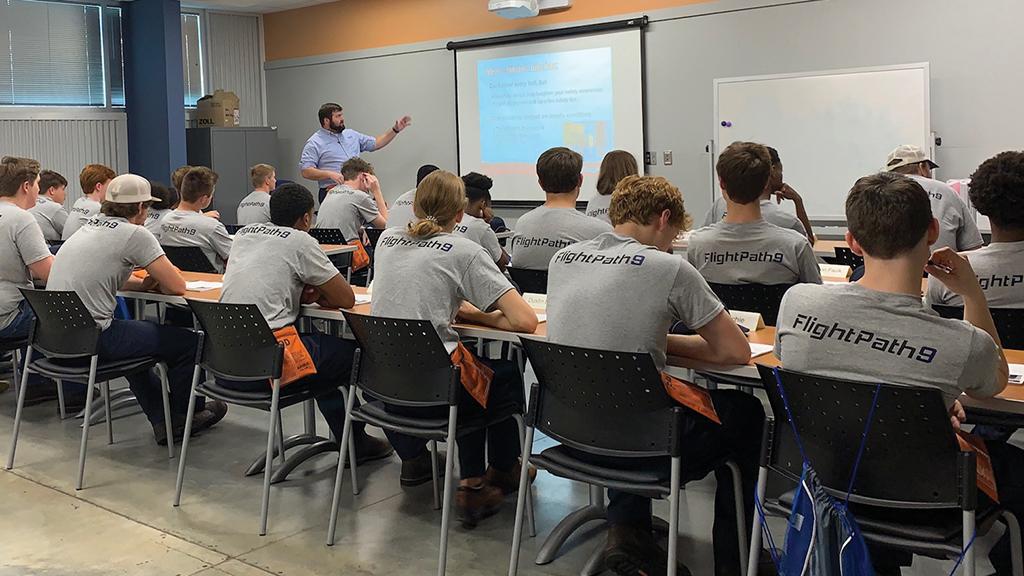Opinion: Early Knowledge-Sharing Key To MRO Workforce Development

Given the abundance of aviation industry content, it is great to capture some of your precious time and attention. Inboxes, mailboxes and internet browsers produce a continual flow of articles, editorials, advertisements, blogs, videos and podcasts. From repair stations to emerging technologies to passenger complaints, there is not an element of the industry that is unexplored.
It is a lot.
Whatever you choose, personal needs and experience drive value. Curiosity and a little luck can provide interesting insights. This happened in February when I opened a print edition of Fly-ND Quarterly. ARSA’s office has received a copy from the North Dakota Aviation Association for years. I do not always review its content, but on this occasion I flipped through it while waiting for something to load on my computer.
Amid the usual structure of an association publication, I found an update from the North Dakota Aeronautics Commission titled “Aviation Education Opportunities.” Given my work on the Youth Access to American Jobs in Aviation Task Force and general efforts in support of workforce and career development, I stopped and read about the successful application for an FAA Aviation Workforce Development Grant (always big news among the cadre of industry groups that have worked for years to institute the program).
“Using grant funds,” the piece explained, “teachers will have the opportunity to attend professional development free of charge to learn more about opportunities for their students in aviation and aerospace.”
This effort is of great interest, particularly considering the disproportionate influence of educators on the direction of students. A survey of teachers performed by my Youth Task Force subcommittee has found those including aviation skills or knowledge in their lessons (a minority) do so because of personal connection or experience with the industry. Considering general ignorance of aviation careers—frequent-flyers care more about armrest etiquette than maintenance practices and customers rarely ponder how yesterday’s order could be flying overhead to them right now—it is incumbent on industry to make that connection.
The workforce grants were envisioned as a mechanism to help. Congress mandated collaboration between industry, academia and government on applications to ensure local community involvement. While we work to improve management of the process and keep in line with congressional intent, we can learn independently from programs like the one in North Dakota.
Several years ago, ARSA issued a “homework assignment” to members to go teach in local schools. The association was not urging career changes, but rather for aviation professionals to reach out about infusing flight into the school day—perhaps making a visit to help with the presentation. It might be time to refocus that instruction: Ask teachers how you can help them more directly.
Good work stems from knowledge. Whether you are consuming or dispensing it, you decide what is next.
Brett Levanto is vice president of operations of Obadal, Filler, MacLeod & Klein, P.L.C., managing firm and client communications in conjunction with regulatory and legislative policy initiatives. He provides strategic and logistical support for the Aeronautical Repair Station Association.
The views expressed are not necessarily shared by Aviation Week.




